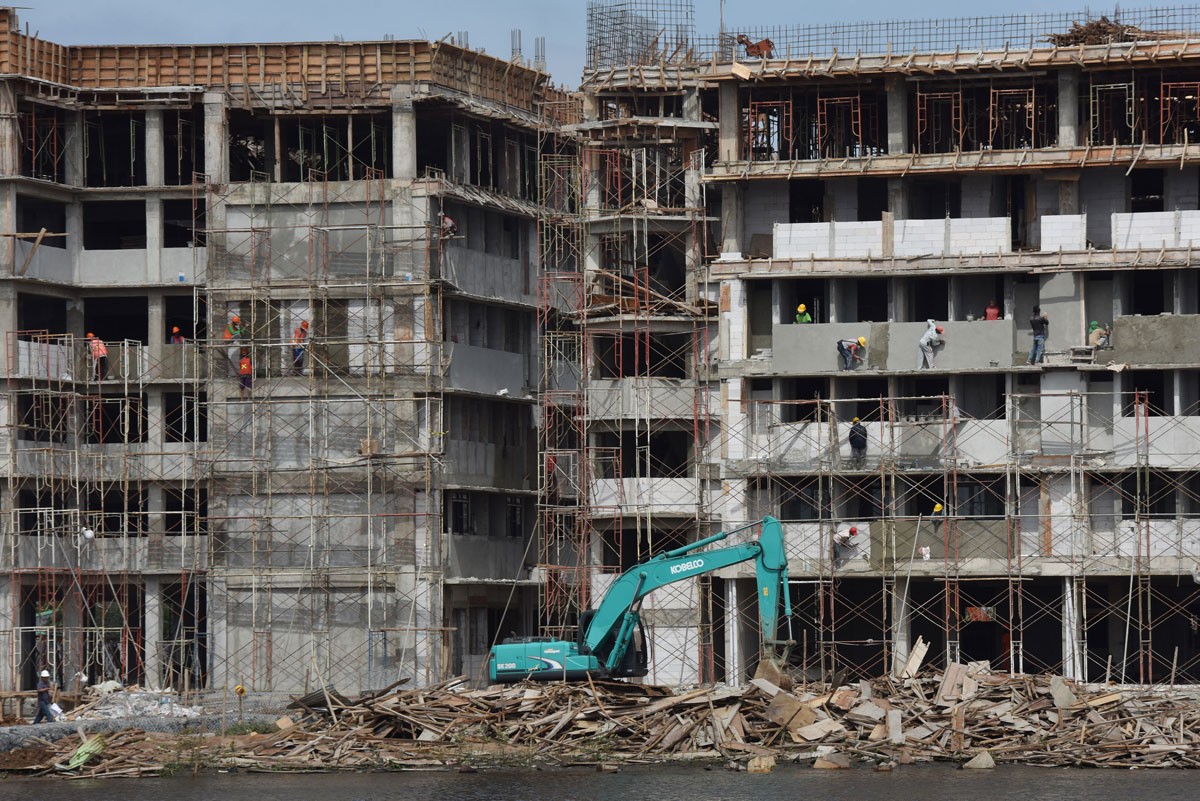Investors shun Indonesia developer stocks amid home price surge
Change Size
 The construction of low-cost apartments in Marunda, North Jakarta, on Dec. 23, 2016. (Antara/Wahyu Putro A)
The construction of low-cost apartments in Marunda, North Jakarta, on Dec. 23, 2016. (Antara/Wahyu Putro A)
A
nalysts love them, investors loathe them. Three out of the seven Indonesian stocks which have unanimous buy recommendations from analysts are residential developers and all of them have fallen by at least 18 percent this year.
Predictions that lower interest rates in Indonesia and last month’s decision by Standard & Poor’s to raise its sovereign rating to investment grade would benefit the country’s property developers, along with banks, have been undercut as soaring prices deterred home buyers.
The Jakarta Construction, Property and Real Estate Index has dropped 6.1 percent this year, the worst performance among the nine industry gauges in the equity benchmark. That contrasts with a 15 percent gain for financial stocks, the best.
Residential property prices in Indonesia’s 14 largest cities have risen by 58 percent in 10 years through the first quarter of 2017, according to central bank data. Increases for some locations are so great that the benefit of cheaper financing won’t be enough to attract buyers, according to Jemmy Paul, a fund manager at PT Sucorinvest Asset Management.
“Home prices in some areas where these listed developers are located have been rising far steeper than the average,” he said. “In some cases it can be more than double. This has made the drop in interest rates meaningless.”
Bank Indonesia went on a cutting spree last year as it lowered rates six times, and the benchmark has been kept unchanged at 4.75 percent since October.
Shares of PT Modernland Realty have dropped 23 percent this year, while PT Intiland Development and PT Lippo Cikarang have fallen 18 percent and 19 percent respectively. All analysts covering the companies have buy calls on them, according to data compiled by Bloomberg.
Millennials represent the most important generation for Indonesia developers right now as around half of this demographic is at the prime age to buy a first home or get a first upgrade, but property-price increases in many cities have outpaced income growth over the past five years, making housing unaffordable, according to Morgan Stanley.
Gross domestic product per capita in Indonesia was 45.2 million rupiah ($3,037) per year, according to the latest survey by the country’s statistics agency in 2015, while average per capita income for Jakarta in 2014 was 174.8 million rupiah. That compares with an average asking price of apartments in the capital of 32.1 million rupiah per square meter, according to a first-quarter report by real estate services company Colliers International Group Inc.
To stay competitive, Indonesian property developers need to adapt to address the needs of the millennial generation which has to deal with increasing home prices and affordability issues, Morgan Stanley’s analysts Mulya Chandra and Nico Yosman wrote in a May 8 report.
“Prices have somewhat stabilized in the past one to two years, but wage growth has yet to catch up,” they wrote. “At more than five-times annual household income, and with average mortgage rates around 10-11 percent, housing is out of reach for many buyers.”
Even Morgan Stanley’s top sector picks Bumi Serpong Damai PT and Ciputra Development PT have underperformed the Jakarta Composite Index’s 8.4 percent advance this year, with Bumi Serpong gaining 3.4 percent, while Ciputra has slumped 14 percent.
For Indra Mawira, a fund manager at PT Panin Asset Management, the divergence has lured him toward the underperforming property companies compared to the banking stocks.
“While many are still holding negative sentiment toward property stocks, I find them to be more attractive after the drop,” Mawira said in a text message. “Share prices on banks have largely priced in all the good news, so I would put property on a slight overweight, while I would hold a neutral stance on banks.”









